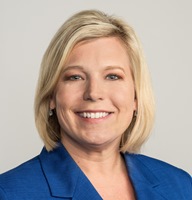Ramsey Alwin, Director of Thought Leadership, Financial Resilience, Office of Policy, Research, and International Affairs, AARP
Ramsey L. Alwin is the Director of Thought Leadership for Financial Resilience in the Office of Policy, Research, and International Affairs at AARP. Alwin’s work focuses on longevity trends and economic security issues, especially as they relate to older adults.
We are on the cusp of a sea change in the area of work. One particular session at the Academy’s annual policy conference at the end of the month, therefore, couldn’t come at a better time. But first, a look at what’s on the horizon.
According to the World Economic Forum’s report, “The Future of Work Jobs Report 2018,” 65% of children entering primary school today will ultimately end up working in jobs that don’t even exist today. In addition to the rapidly changing nature of work, the relationship between the employer and the employee is changing, while longevity trends are pushing individuals to want and need to work longer.
To better understand the megatrends driving the future of work, over the past several months AARP has embarked on a listening tour, engaging the country’s leading experts in examining the mega trends and the implications for individuals who are both mid-life and mid-career. From these conversations a consensus on the big game changers emerged:
· Globalization,
· Automation and disruptive technologies,
· The rapidly changing employer-employee relationship,
· A rise in contingent work and the gig economy,
· Rising inequality,
· Rapidly changing education and training approaches, and
· Longevity and longer work lives.
Given the transformational nature of these changing currents, the navigation equipment of the past will be no match for the uncharted waters of the future. Many of those we engaged shared that “the future of work” is bigger than just work. It’s how we will approach income and wealth generation. Experts even suggested we need a new economic model for the 21st century and beyond, as the current model and systems in place to support it are largely based on the agrarian and manufacturing economy of the past.
In short, as the experts suggested, today’s economic system is far more complex than the one defined by those historic economic drivers. It is time, therefore, to construct a new economic model that better addresses income adequacy and productivity in light of all of the megatrends.
Social insurance from another time
When the U.S. was industrializing and urbanizing in the 19th and 20th centuries, workers, businesses, and civic leaders cooperated to adopt a series of pioneering social policies. Many of these policies and programs – including Social Security, Unemployment Insurance, Workers’ Compensation, and health care coverage through Medicare and Medicaid – continue to protect millions of Americans today.
But changes that will define work’s future have implications—including, perhaps, opportunities—for such policies and programs. What emerging risks do current social insurance programs address as the nature of work changes? Do we need to develop new economic and social policies to address different risks facing future generations? And on the opportunity side of the equation, how might we improve existing policies and programs to address challenges facing various communities and generations? How might we leverage the changing nature of work to narrow income inequality?
It’s time for us to reexamine the social compact in light of the megatrends driving the future of learning and earning. If we want to ensure economic stability and growth, we must navigate—and create—the future by redefining roles for all.
An in-person exploration of the issues
There is no better time to engage Academy members and friends of the Academy in exploring what these trends mean for social insurance.
Join me the morning of January 31st for the Academy’s annual policy conference, Regenerating Social Insurance for Millennials and the Millennium. During the panel titled, “The Changing Nature of Work: Challenges and Solutions,” I will moderate a discussion on the many megatrends influencing the future of work, and the implications for society, employers, employees, and social insurance. The panel will provide an opportunity to hear a range of perspectives on the issues, with confirmed speakers including:
- Romina Boccia, Director, Grover M. Hermann Center for the Federal Budget, The Heritage Foundation
- Jessica Fulton, Director, Economic Policy, Joint Center for Political and Economic Studies
- Shelly Steward, Research Manager, Future of Work Initiative, Aspen Institute
- Aliya Robinson, Executive Director, Retirement Policy, U.S. Chamber of Commerce
We’re all excited to bring you this compelling session. It no doubt will be made all the stronger by your participation.

